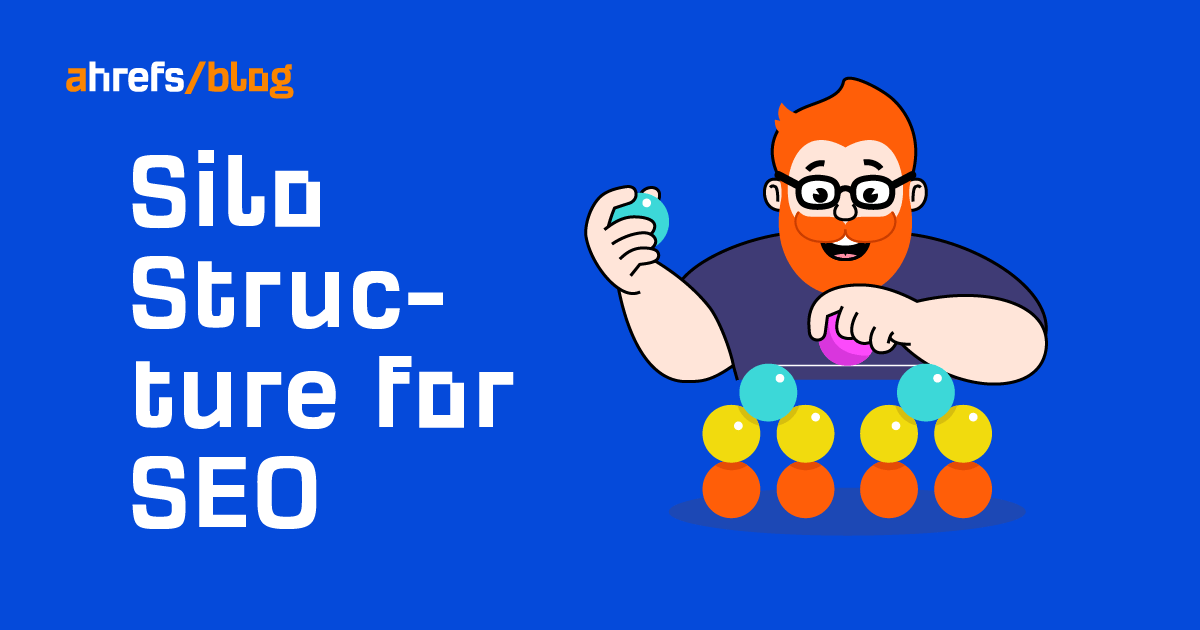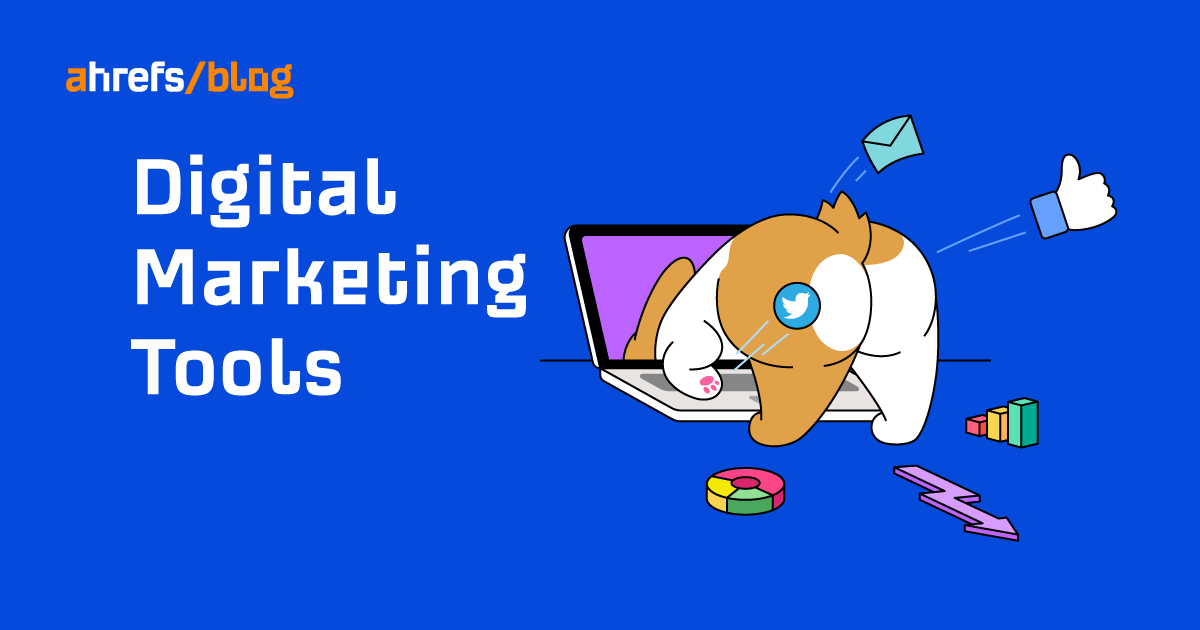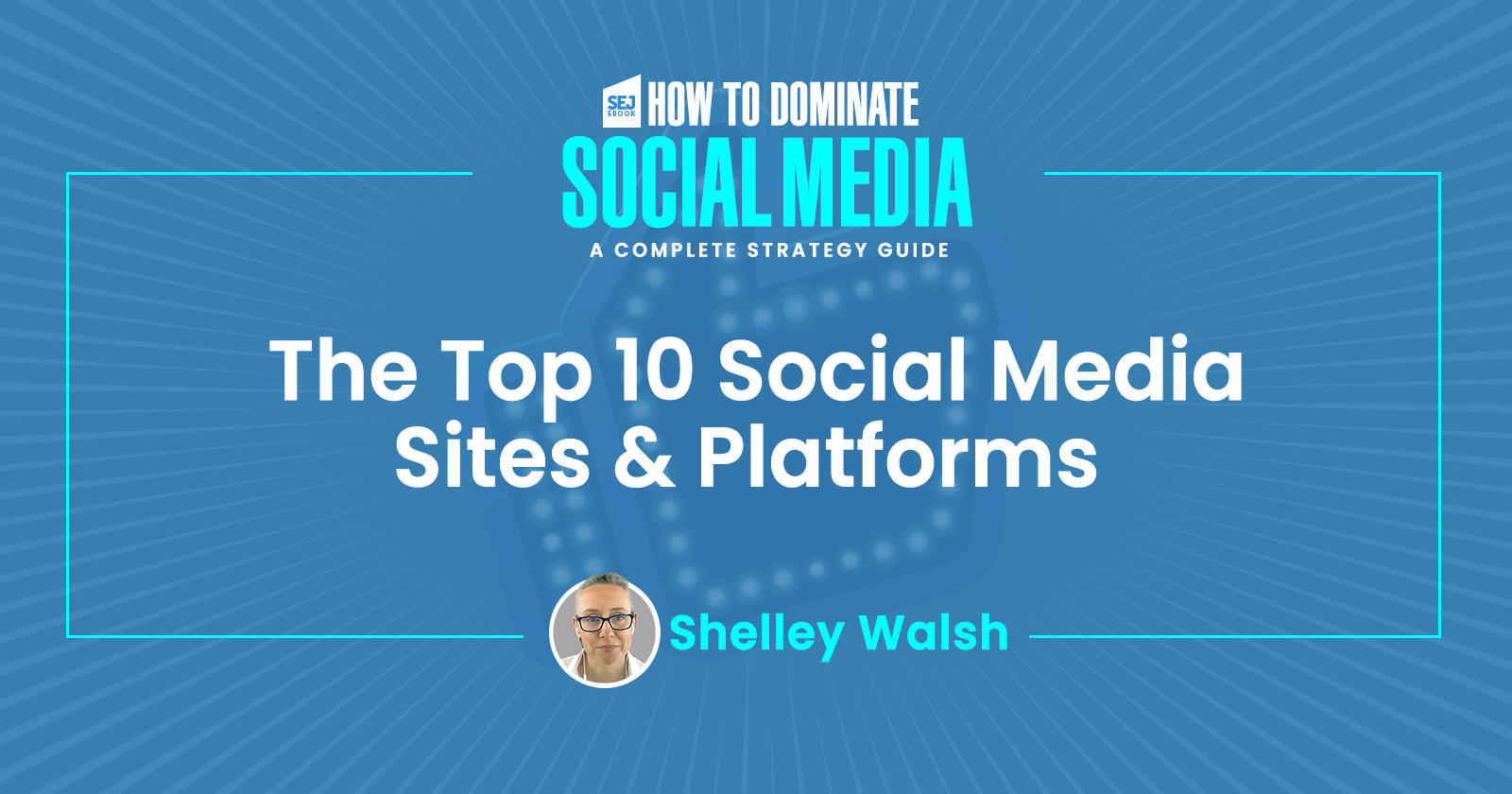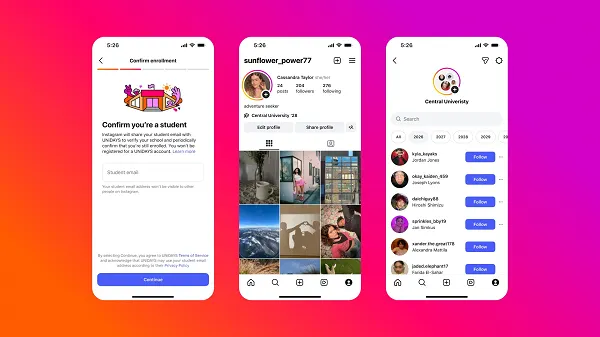Top 5 Ways To Drive Revenue With A Clean Marketing Tech Stack via @sejournal, @hethr_campbell
Learn how to reduce ecommerce app overload. Find the right apps to increase your ROI. The post Top 5 Ways To Drive Revenue With A Clean Marketing Tech Stack appeared first on Search Engine Journal.
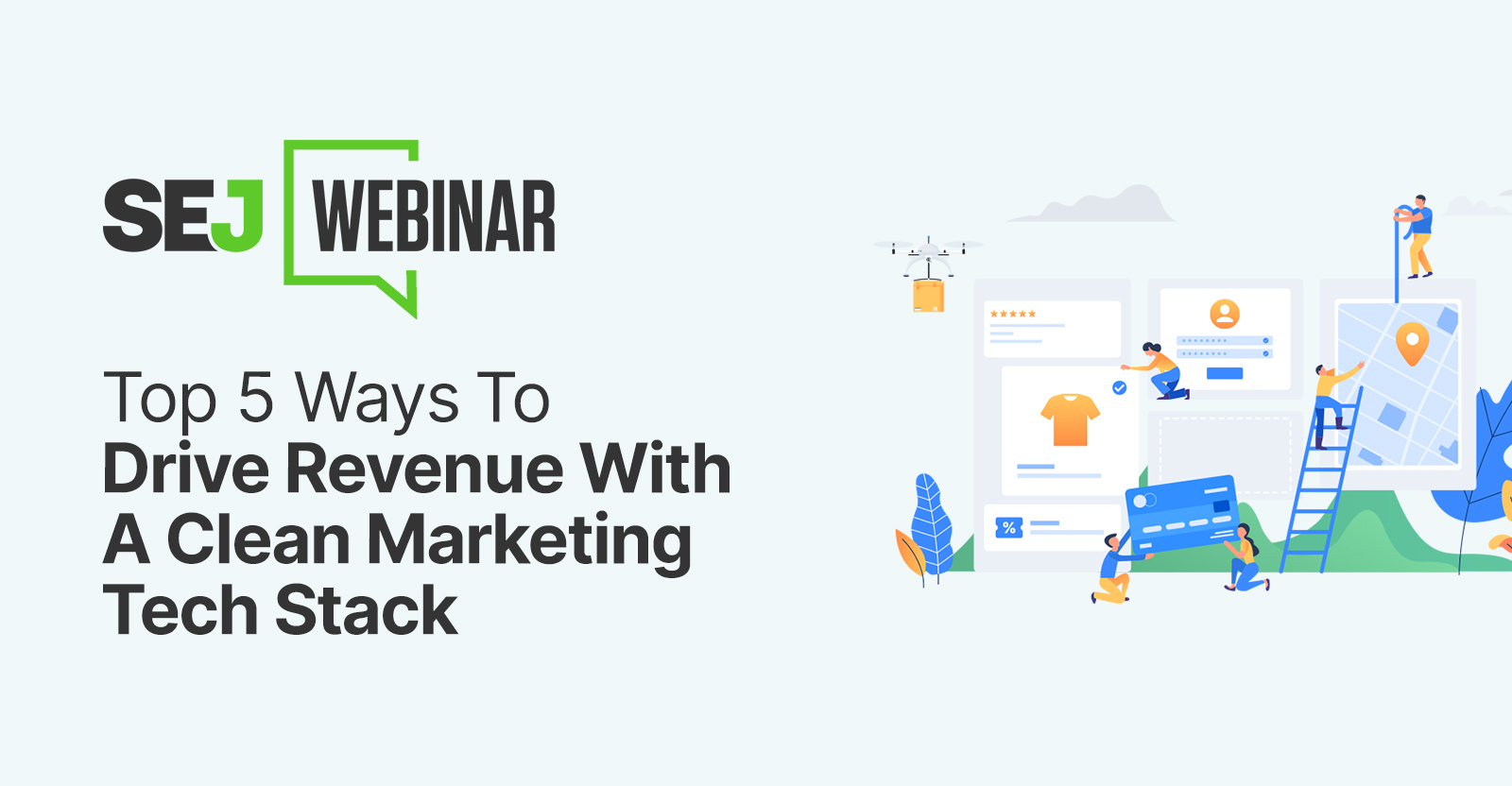
Running an ecommerce business?
How many apps have you added to your site to improve customer experience?
A handful, you say?
Maybe not enough?
It’s easy to keep adding new plugins geared toward improving your customer’s user experience, increasing sales, etc.
But with so many bells and whistles, marketers can lose track of their focus.
Let’s cut down the laundry list of apps in your ecommerce site’s ecosystem.
This 360-degree strategy has one goal in mind: driving revenue.
On June 1, I moderated a webinar with Bridgeline’s ecommerce product and marketing experts, Shreyas Kamath, Victoria Lindsay, and Jonathan Meyer.
Kamath, Lindsay, and Meyer provided a walk-through of the crucial aspects of your site that help attract traffic and convert visitors into customers.
Here is a summary of the webinar.
To access the entire presentation, complete the form.
How To Evaluate If Your Marketing Strategies Are Successful
As a marketer, you need to find the sweet spot between:
Traffic. Conversion. Average Order Value (AOV).[Get the formula that leads to success] Instantly access the webinar →
5 Ways To Increase Revenue With A Clean Marketing Tech Stack
These five steps can help you trim down apps that aren’t contributing to your company’s overall goal.
You’ll be able to uncover your top performers as well as discover ways to consolidate multiple apps into a combined, single point of data and functionality.
1. Peek Into Your Marketing Technology Stack
Take inventory of your apps and how they connect to your new revenue strategy.
Use these questions to audit and clean up your martech stack:
Does your martech stack align with your current business goals? Are you utilizing all of the available features of your current software, apps, and tools? How many people in your department or across the company know how to use these tools? When were these tools added? What metrics are available?[Discover next steps] Instantly access the webinar →
2. Focus On Key Data
As you audit your martech stack, you’ll uncover different data sets that cover other kinds of metrics.
But do these metrics align with your business goals?
Revisit your business goals.
Then, decide if you want to focus on sessions, clicks, conversions, etc.
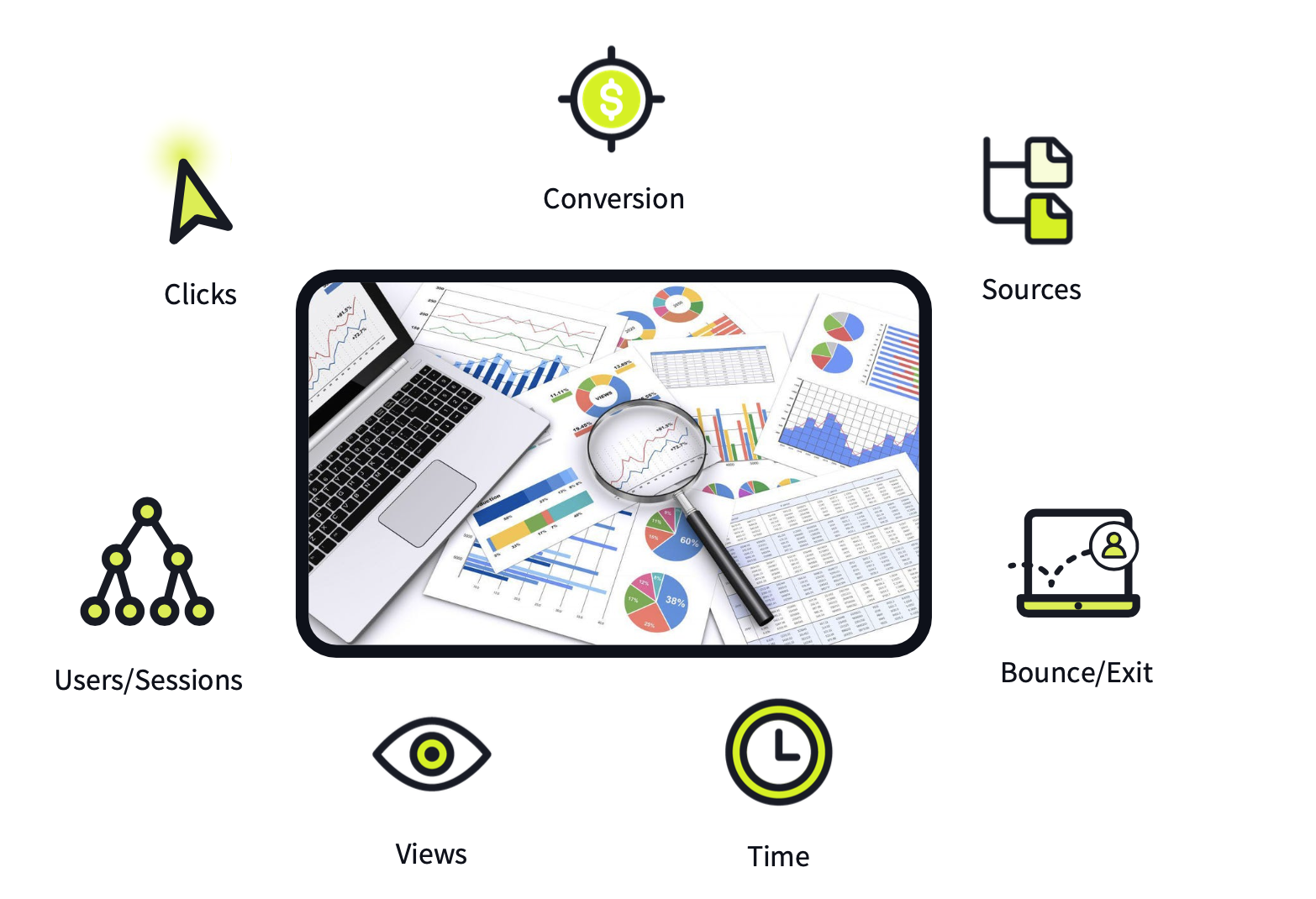 Bridgeline, June 2022
Bridgeline, June 2022
Tip: With the sun setting of Google’s Universal Analytics, focus on looking at what you have in Universal Analytics, and then start porting that over to Google Analytics 4.
[Why you should do this?] Find out in the on-demand webinar →
3. Organize Your Traffic Strategy
Auditing and finalizing your traffic strategy will help you get a stronger handle on the apps that are working in your favor.
Evaluate your traffic strategy by breaking it into these categories:
Time: discover the best times to send traffic to your site. Location: know where your audience is in the customer journey. Persona: understand your ideal customer.Then, focus on the technical aspects of your traffic strategy.
Rank, assess, and organize the following by the above categories:
Off-page SEO. Look at PPC. Look at backlinks. On-page SEO. Look at image quality. Look at the heading, meta descriptions, and content itself. Technical SEO. Look at core web vitals.[Get details on how these work together] Instantly access the webinar →
Now, map out which apps are directly helping you achieve the goals of your traffic strategy.
4. Identify Opportunities To Boost Conversions
Now that you have organized your traffic strategy, you’ll need to ask yourself:
Are your users engaging and converting? Is the persona behaving as you expect them to?Focus on getting the user to the goal faster by optimizing:
Search. Landing pages. Banners & marketing. Email marketing. A/B testing. Repeat user vs. new user content.[Dig deeper into each one] Instantly access the webinar →
Now, decide which apps are helping with optimization.
Could you consolidate your apps into a single app that does it all?
5. Analyze Your Shopping Carts
Now, it’s time to increase ROI by increasing your average order value (AOV).
This is your opportunity to start creating brand loyalty and introducing other options to someone who’s already indicated that they’re interested.
Increase AOV by introducing:
Personalized recommendations. Cross-sells. Up-sells. Reorder pads.[Find out what else can increase AOV] Instantly access the webinar →
Using an app that provides these shopper perks can help improve ROI.
Key Takeaways
Finding that sweet spot in your martech stack is as easy as auditing and aligning your apps to your revenue goals.
Look at these factors and take a 360-degree approach to using only the apps that truly help with:
Traffic On-page SEO. Off-page SEO. Technical SEO. Content. Conversions Site search. Personalization. Email marketing. Chatbots. AOV Personalized recommendations. Cross-sells. Up-sells.[Slides] Top 5 Ways To Drive Revenue With A Clean Martech Stack
Here’s the presentation:
Top 5 Ways To Drive Revenue With A Clean Marketing Tech Stack.pdf from Search Engine Journal
Join Us For Our Next Webinar!
Local SEO: Top 6 Ways To Get Higher Quality Reviews
Concerned about the online reputation of your local business? Learn how to stay competitive and win customers before they even walk into your store on June 8, 2 p.m. ET.
Image Credits
Featured Image: Paulo Bobita/Search Engine Journal

 Kass
Kass 







